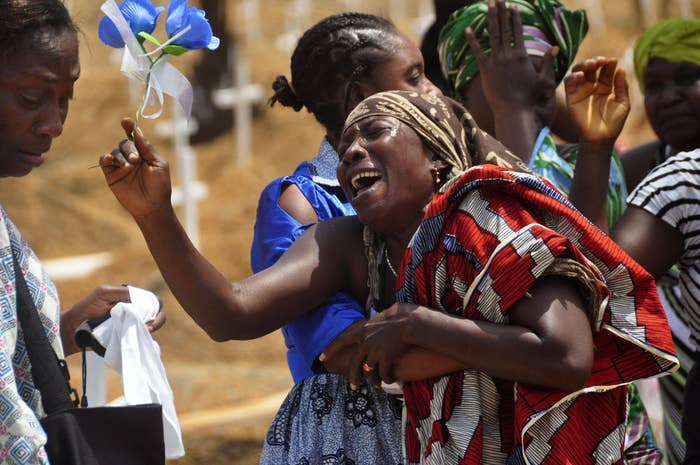The World Health Organization denied Monday that economic relations and diplomatic concerns affected its decision to delay announcing a state of emergency for the Ebola outbreak, the Associated Press reported.
A WHO spokesperson said that "political considerations did not play a role," but did not answer any detailed questions about the two-month delay in the emergency announcement, which could have cost hundreds of lives.
Emails obtained by the AP last week showed that top WHO officials were aware of the potential deadliness of the most recent Ebola outbreak, yet continued to view an emergency declaration as a "last resort" over concerns about the economies of some African countries, as well as an upcoming Muslim pilgrimage to Mecca.

Even as the World Health Organization's staff warned of the dire Ebola situation in West Africa, WHO officials resisted declaring the epidemic a public health emergency for two months — a delay that may have cost hundreds of lives, the Associated Press reported Friday.
The global health organization has been criticized for bungling its Ebola response and has admitted in public and in internal reviews that "nearly everyone" involved in the crisis response failed to notice the potential for Ebola's devastating spread.
The AP reported that despite being made aware of the gravity of the outbreak, WHO's headquarters in Geneva held off on declaring the outbreak a public health emergency due to diplomatic concerns for hurting the affected African countries' economies and interfering with Muslims' holy pilgrimage to Mecca.
In a direct message sent to Britain's ITV News on Twitter last year, WHO spokesperson Gregory Hartl said, "You want to disrupt the economic life of a country, a region [because] of 130 suspect and confirmed cases?"
According to documents obtained by the AP, Guinea's Ministry of Health was obscuring suspect and probable cases from WHO to allegedly downplay the magnitude of the Ebola outbreak as a way of reassuring workers in its mining industry. There were also fears of political repercussions if Saudi Arabia placed travel restrictions on the predominantly Muslim country of Guinea for the annual Hajj pilgrimage.
When scientist Lucien Manga sent an email to Dr. Sylvie Briand — the head of WHO's pandemic and epidemic diseases department — proposing that the Ebola outbreak be declared a global emergency last June, Briand responded, "It may be more effective to use other diplomatic means for now."
Later that month, Briand and her colleagues sent a memo to WHO chief Dr. Margaret Chan, saying that declaring an emergency "could be seen as a hostile act."
A "Public Health Emergency of International Concern" is deemed an "extraordinary event" that may require immediate international action, according to the 2005 International Health Regulations.
Experts told the AP that sending such an international SOS sooner could have saved lives. Nearly 1,000 people had died by the time WHO declared the emergency.
At least 10,314 people have died from the outbreak so far.

